Sun Yat-sen's lover Cuifen and her Malaysia villa
What will matter most on one's deathbed? For Chen Cuifen, partner of Sun Yat-sen, it was a gold ring and a pocket watch, engraved with Sun's English name.
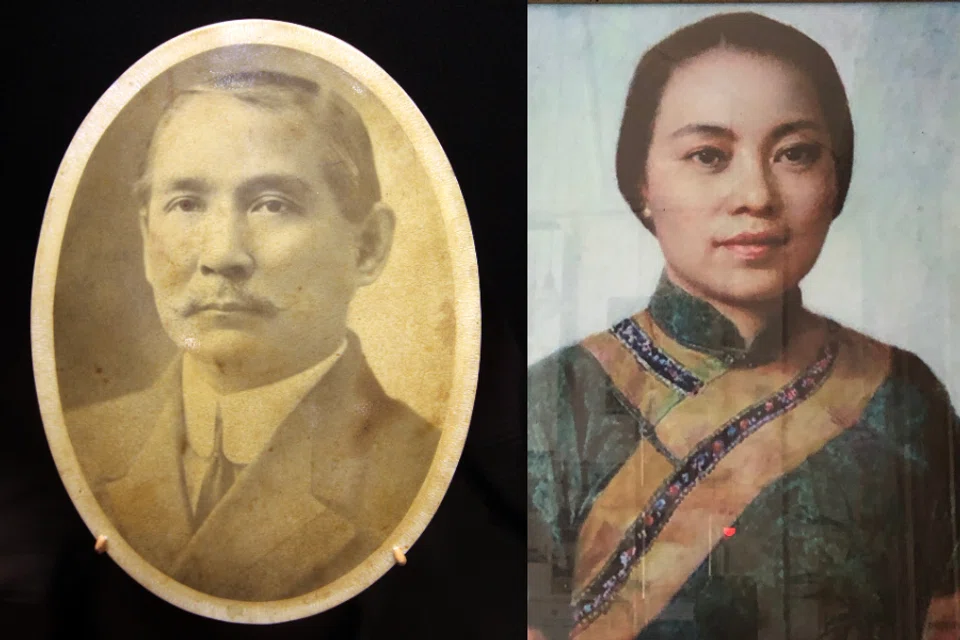
Many may know the town of Taiping in Perak, Malaysia, for its luscious landscapes and glistening waters. Yet hidden away from the public eye are stories of an intriguing forgotten past waiting to be rediscovered.
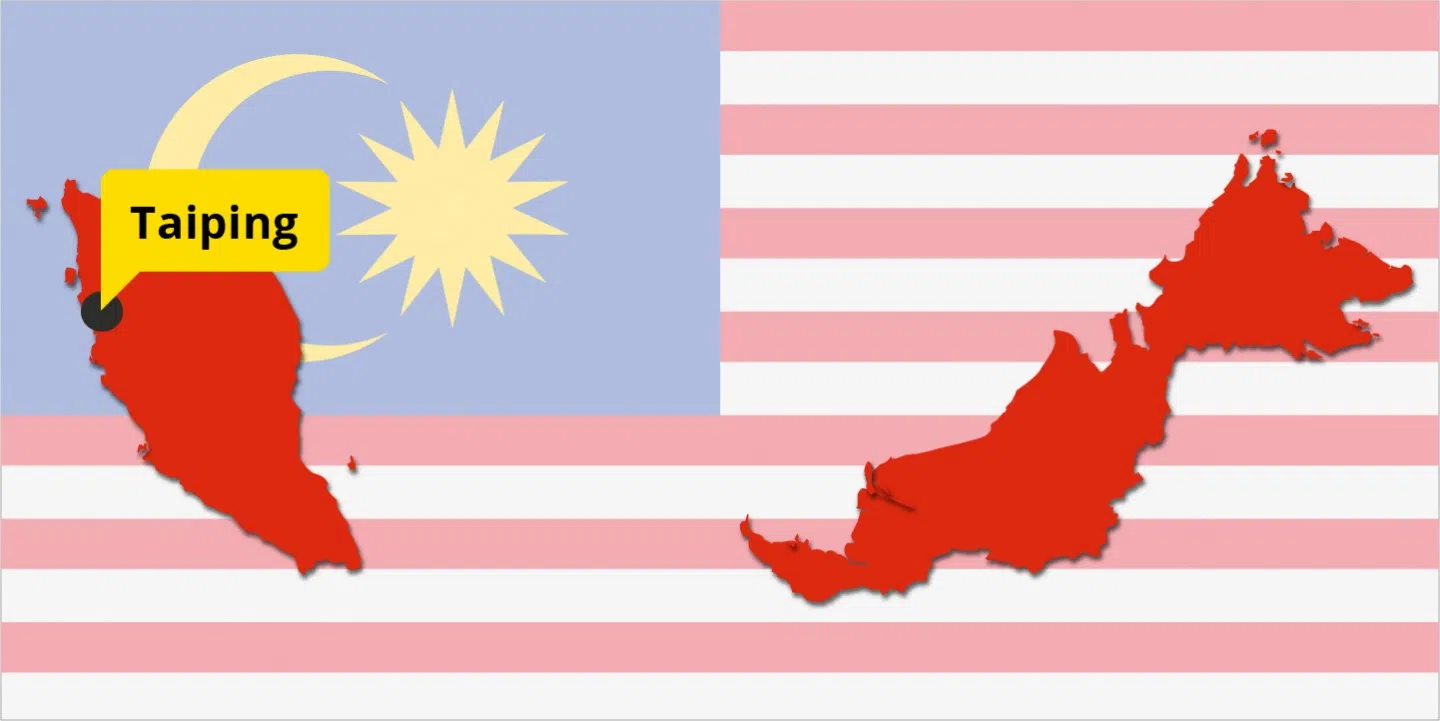
On a recent trip to Taiping with my friends, a missed opportunity to visit the hill resort of Bukit Larut opened the door for an unplanned adventure to the Aun Tong Coffee Mill in Assam Kumbang. It was an adventure that would uncover a "revolutionary" love story deeply embedded in the days of the Republic of China, the story of Sun Yat-sen and his romantic partner during the revolution, Chen Cuifen.
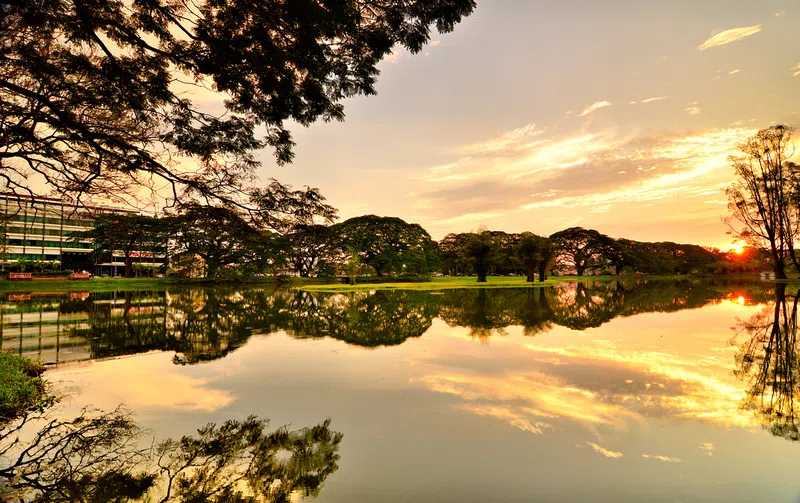
The villa
Beside the Aun Tong Coffee Mill is the Changchun Pu villa, looking washed out by the passage of time. A fan-shaped wooden plaque with the inscription Changchun Pu (长春圃) hangs on the building's external wall, and a signboard with the words Aun Tong (安东) is prominently displayed above the door to the villa. Not far from the door stands a statue of Sun Yat-sen.
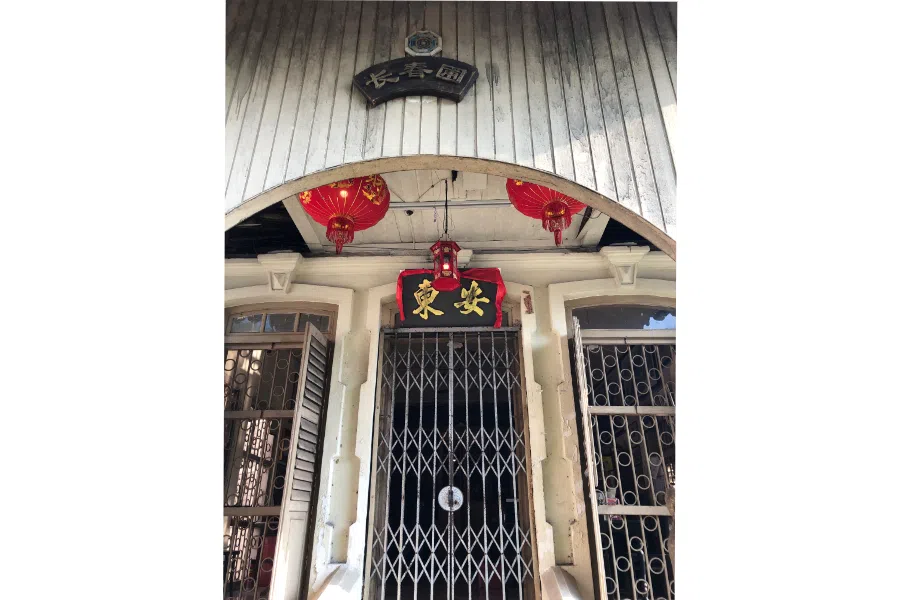
Star-struck visitors would snap photos with the statue, even those who don't know they are posing next to the founding father of modern China. Sun Yat-sen, the man who played an instrumental role in overthrowing the Qing dynasty during the Xinhai Revolution was, after all, quite a distinguished-looking gentleman.
My friends knew nothing about the history of Changchun Pu, and the baristas knew more about coffee production and coffee bean types than they did about the villa's past. Indeed, most people visit the place to see its historical coffee mill and taste its coffee, though everyone is vaguely aware that the villa has some connection to Sun Yat-sen.
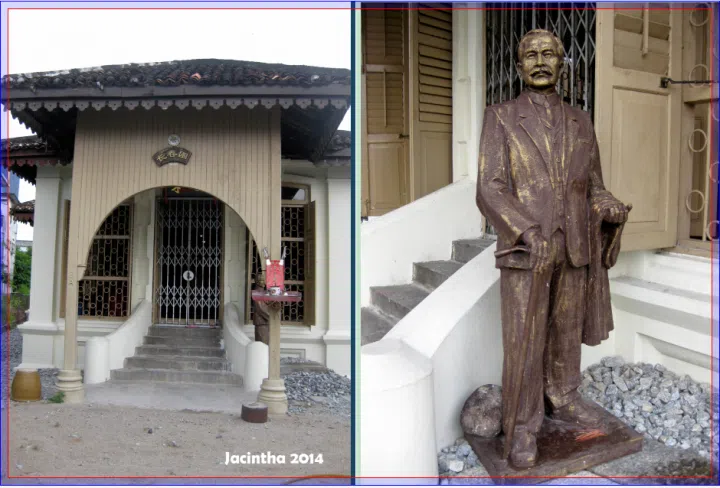
On entering Changchun Pu, one sees interior walls plastered with photographs, portraits, calligraphies, and newspaper cuttings, each with their own stories to tell. Apart from a few portraits of Sun Yat-sen, there is a colour portrait of a young Chen Cuifen hanging alongside a few black-and-white photos of her on the walls. That led me to wonder whether there could be a link between Changchun Pu and Chen Cuifen.
I found some answers in the newspaper clippings on the walls. It was recorded in researcher Li Yongqiu's article that Chen had travelled alone to Malaya in 1914 after breaking up with Sun Yat-sen. She stayed at Changchun Pu for many years and adopted a daughter, Su Zhongying (苏仲英).
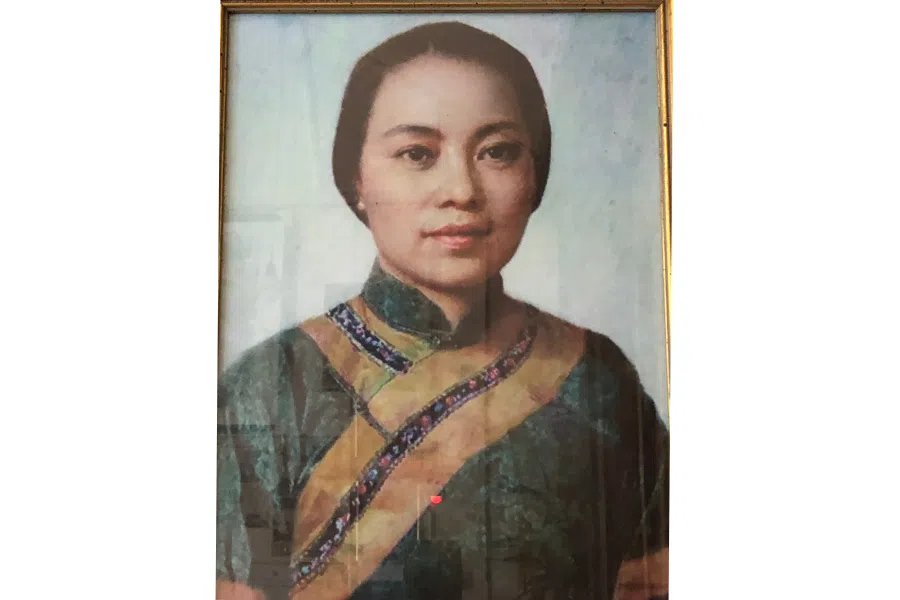
The first owners of Changchun Pu was Chan Kye Choo (陈继祖), elder brother of Chan Peik Kwan (陈璧君). Chan Peik Kwan fell in love with the talented Wang Ching-wei (汪精卫, a close associate and active supporter of Sun Yat-sen) and married him. The Chan siblings were in close contact with members of the Tongmenghui (同盟会) that Sun Yat-sen founded. It was only natural, then, that Chen Cuifen made her home in Changchun Pu.
Changchun Pu became the Aun Tong Coffee Mill in 1940, when Tiah Ee Mooi (程依妹), owner of the mill, rented the place to set up his coffee mill. He subsequently purchased the property in 1942.
The betrayal
Chen Cuifen was known by many as Sun Yat-sen's "partner in revolution" (geming banlv 革命伴侣). Her birth name was Xiangling (香菱), and she was also known as Ruifen (瑞芬). She was born in Hong Kong, but her hometown was in Tong'an, Fujian. Being the fourth child in her family, she was often affectionately called sigu (fourth aunt) by comrades of the revolution. She was Sun Yat-sen's confidante. The pair met through Chinese revolutionary Chan Siu-bak, who introduced Chen to Sun when the latter was studying in Hong Kong in the 1890s.
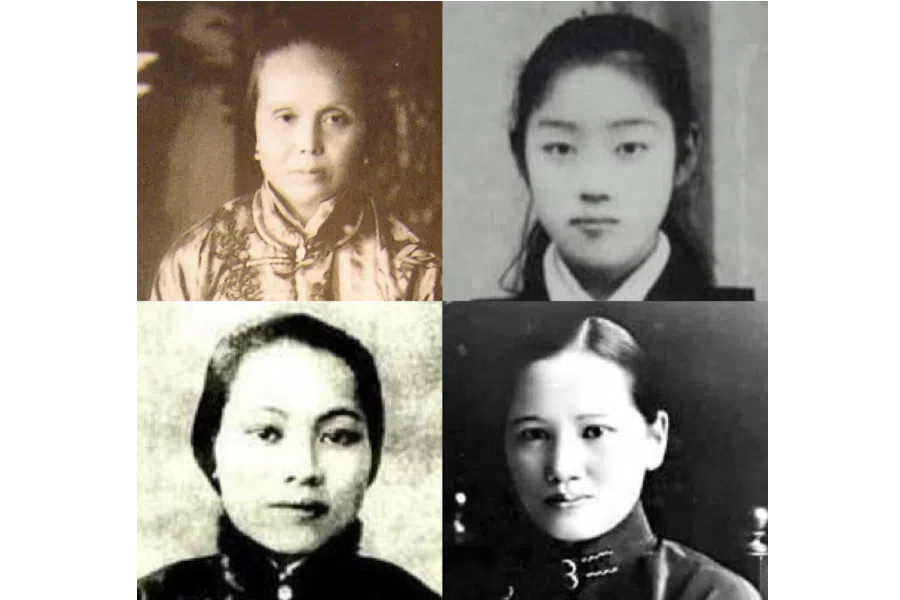
Sun Yat-sen is said to have had romantic relationships with at least four women during his lifetime. His first wife Lu Muzhen (1867-1952) selflessly took care of his children; his partner in revolution, Chen Cuifen (1874-1962), braved all storms and conquered all odds with him during his revolutionary career. The "Mother" of China, Soong Ching-ling (1893-1981), was often referred to as Madame Sun Yat-sen in the days of Sun's reign; and Sun's second wife Kaoru Otsuki's marriage with Sun, was only a brief one.
Whether Sun was practising medicine in Macau, taking refuge in Japan, or plotting the revolution in Nanyang, Chen risked her life and did all she could to support his career.
Unlike Lu Muzhen and Soong Ching-ling, Chen Cuifen was not recognised. History does not remember her name, and her relationship with Sun Yat-sen was never made public. She was placed under a "political ban" to protect the images of Sun and Soong. Even when she passed away in Hong Kong in 1962, her funeral was miserably simple, without a single obituary in the newspapers, and her body was hastily buried in a Chinese cemetery in Tsuen Wan, Hong Kong.
However, the "ban" made her mysterious and intriguing. She was like a female warrior, and so became the perfect muse for movies and plays a hundred years later.
Chen and Sun spent over 20 years together. Before the success of the revolution, Chen stayed by Sun's side, taking care of his every need. Whether Sun was practising medicine in Macau, taking refuge in Japan, or plotting the revolution in Nanyang, Chen risked her life and did all she could to support his career. She cooked his meals, washed his laundry, and even delivered intelligence and smuggled ammunition for him and the revolution.
Was she his confidante? Partner? Concubine? Platonic revolutionary companion? Bodyguard? Follower?
After the Qing dynasty was overthrown in 1911, Sun took centre stage in the political arena and said goodbye to the days of fleeing and hiding from his enemies. But it was not long before he again fled to Japan in August 1913, when his Second Revolution against Yuan Shikai failed miserably. During his asylum in Japan, he met Soong Ching-ling. Classy and elegant, Soong was 27 years his junior and had studied in the United States. She became his secretary. He was immediately drawn to her, and she was full of admiration for him.
Sun Yat-sen decided to divorce his first wife, Lu Muzhen, and sever all ties with Chen Cuifen. Chen, who was around 40 years old at that time, decided to leave for Nanyang for good. It would be close to 20 years later, in 1931, before she returned to Hong Kong and Guangzhou with her adopted daughter Su Zhongying, upon Sun Fo's (孙科, Sun Yat-sen's son) request.
The dispute
It wasn't until many years after her death that Chen Cuifen caught the public's attention. In the midst of Xinhai Revolution's 100th anniversary, people tried to put a name to the relationship she had with Sun Yat-sen. Was she his confidante? Partner? Concubine? Platonic revolutionary companion? Bodyguard? Follower?
One side acknowledged Chen's relationship with Sun, seeking to restore Chen's rightful position as one of Sun's partners, while the other camp refused to do so, wanting to uphold Sun Yat-sen and Soong Ching-ling's historical image at all costs.
There were so many clashing ideas about the relationship between the pair that the 100th-anniversary celebration of the 1910 Penang Conference (庇能会议) ended in two separate commemorations because the organisers couldn't agree on the screening of the movie Road to Dawn (《夜·明》). The movie acknowledged the romantic relationship between Chen and Sun.
It was not only a dispute amongst the organisers. Descendants of the Sun family who attended the commemorative event were also split into two camps. One side acknowledged Chen's relationship with Sun, seeking to restore Chen's rightful position as one of Sun's partners, while the other camp refused to do so, wanting to uphold Sun Yat-sen and Soong Ching-ling's historical image at all costs.
Su Zhongying's son, Sun Bisheng, reported that Chen Cuifen's name has been added into the Sun genealogy as Sun Yat-sen's concubine. Her tomb has also been relocated from Hong Kong to the Sun family burial plot at Cuihengcun (翠亨村) in Guangzhou. This relocation was said to be Sun Tse-ping's (孙治平, 1913-2005, the grandson of Sun Yat-sen and his first wife, Lu Muzhen) final wish before he passed away.
It is evident that Chen Cuifen was Sun Yat-sen's concubine, as evidenced by his letters. Writing to his daughters, Sun Yan (孙娫) and Sun Wan (孙婉), in a letter dated December 1910, Sun clearly addressed Lu Muzhen and Chen Cuifen as their "two mothers".
While Sun Tse-ping didn't forget to acknowledge Chen Cuifen, Sun Sui-ying (孙穗英), Sun Fo's eldest daughter, was adamant. She insisted on defending Soong Ching-ling's image as the "Mother" of China. In 2010, although Sun Sui-ying was unable to attend the commemoration of the 1910 Penang Conference due to advanced age, she made her presence felt. She instructed her son, Dr Lin Shanli (林山立), to denounce all claims that Chen Cuifen and Sun Yat-sen were once in a relationship, insisting that Chen was just a "partner in revolution" acting as a "cover" for Sun to keep his actions out of sight from potential enemies.
Sun Sui-ying's actions were not without reason. She was on close terms with Soong Ching-ling, who solemnised her wedding.
The surrender
In 1915, Sun Yat-sen married Soong Ching-ling in Japan. Ten years later, Sun passed away and was laid to rest in the Sun Yat-sen Mausoleum in 1929. Throughout this period of time, Chen Cuifen never once left Nanyang, and she wouldn't have left at all if not for Sun Fo's invitation.
Chen Cuifen spent her golden years living with her daughter and son-in-law. Sun Bisheng once told the media that Chen Cuifen passed away in his embrace on 21 October 1962. As she lay dying, she passed him a gold ring and a pocket watch, the two items she had most treasured throughout her life. The pocket watch had Sun Yat-sen's English name engraved on it and was the only keepsake he gave her. She finally let him go and breathed her last.
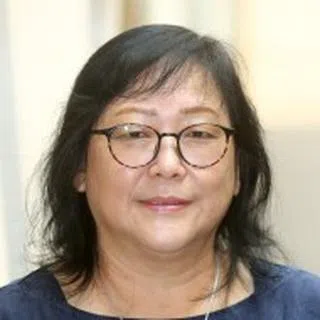

![[Big read] When the Arctic opens, what happens to Singapore?](https://cassette.sphdigital.com.sg/image/thinkchina/da65edebca34645c711c55e83e9877109b3c53847ebb1305573974651df1d13a)


